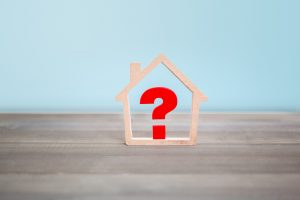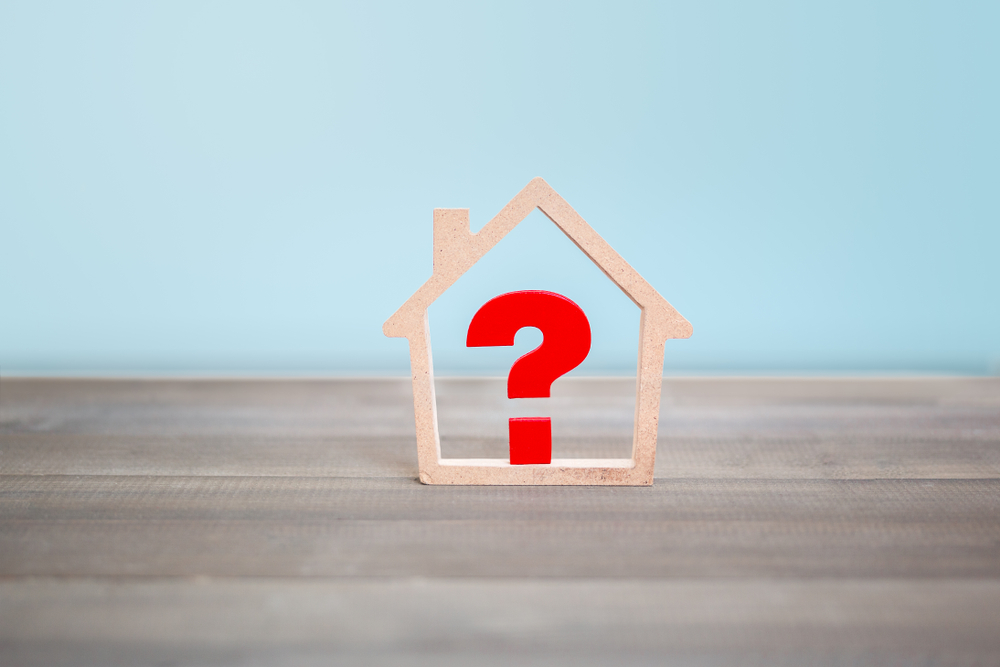What would happen if your mortgage lender went bust? And is it possible to get a mortgage with a history of bad credit?
 These are two of the most frequently-searched-for questions about mortgages, according to mortgage broker Trussle, and provide an insight into the concerns of both current and prospective borrowers.
These are two of the most frequently-searched-for questions about mortgages, according to mortgage broker Trussle, and provide an insight into the concerns of both current and prospective borrowers.
Worry over debt is clearly a source of unease amongst many would-be borrowers. Indeed ‘can I get a mortgage if I have an overdraft?’ was also amongst the most commonly-asked questions.
Meanwhile a number of people were also keen to find out whether it was possible for the self-employed to take out mortgages.
And many borrowers wondered whether it was possible to take their mortgage with them if they moved house.
In case any of these burning questions are keeping you awake at night, Dilpreet Bhagrath, Trussle’s mortgage expert, has provided her expert advice.
She explained, buying a home was one of the biggest financial and emotional commitments someone would make in their lifetime. As such she said it was important to speak to a mortgage broker to discuss what options are available to you and lead you through the process.
What happens if your mortgage lender goes bust?
“Don’t panic. There will be a process in place to protect you,” Bhagrath said.
“Contact your lender as soon as possible to ask for their advice on the next steps with your mortgage. In some instances, they’ll continue to honour the product until the end of your mortgage term, with the help of another lender who might purchase their portfolio of mortgage loans.
“In most cases, the terms of your mortgage agreement won’t change.”
A similar scenario played out recently when Tesco Money announced it was selling its mortgages to Lloyds Banking Group, under the part of the business run by Halifax.
Tesco Money confirmed its customers’ terms would remain the same and there would be no changes to their loan.
Can I get a mortgage if I have bad credit?
“Many people will assume that if they have a poor credit rating, they won’t be able to get a mortgage,” said Bhagrath. “But that’s not always the case.”
She said there may be options out there and explained some credit issues carry less weight than others.
“Factors including how much bad credit you have and how long it’s been since the incident occurred will all contribute to whether the lender approves your application.
“Some high street lenders will consider offering you a mortgage deal if they consider your credit issues as small.”
The mortgage deals available to those with bad credit are likely to have higher rates and fees, and they may require a larger deposit. Bhagrath suggests speaking to a mortgage broker about the options available to your situation.
Can you get a mortgage if you have an overdraft?
Yes, but the lender will firstly need to assess something call your ‘debt-to-income’ ratio. This is the portion of your monthly income which is used paying credit card bills, loans and student finance and is scrutinised to ensure you aren’t overstretching yourself financially.
Bhagrath said: “If you’re actively using your bank’s overdraft, or paying one off, this will also be taken into account during the mortgage application. When lenders assess your monthly income and outgoings, any money used to pay off the overdraft will be accounted for.”
Her advice is to cancel any unused credit cards before applying for a mortgage because lenders look at the amount of credit available to you, not the amount you owe.
Can you get a mortgage if you’re self-employed?
“While it can seem like a trickier process, self-employed people can still successfully apply for a mortgage, Bhagrath said.
“Make sure you’re prepared with at least two to three years’ of financial documents as this is the amount some lenders will require. Keep your personal and professional bank accounts separate, and registering for the electoral roll can help lenders to confirm your identity.
“As always, it’s important to consider any personal and future circumstances when securing a mortgage, and seek professional advice to ensure you’re aware of the options.”
What happens to your mortgage when you move house?
Sometimes it’s possible to take your mortgage deal with you when you move house. This is called ‘porting’ your mortgage. All you need to do is ask your lender about the process.
It will involve a valuation of your property and if your new home is larger and you need to borrow more – known as a ‘top up’ – you will have to provide evidence you can afford the higher repayments.
Bhagrath explained: “It’s important to remember that the ‘top-up’ will be based on the mortgage deals available from the lender at the time, not on the same interest rate as your current deal.
“Should they decline your request to borrow extra money, you’ll need to pay the early repayment charge on your current mortgage and find a new lender to finance your new home. It’s worth speaking to a mortgage broker to find the most suitable outcome for your personal circumstances.”















Hi..two months ago I bought my house outright with the sale of my previous house for 205000 with no mortgage but would now like to remortgage to raise approx £20/25000 for home improvements …
.
thank you
Dear Rebecca – here is the response to your question from Neil Bishop of Mortgages for Business: “That’s fantastic – congratulations. Some lenders require you to have owned a property for six to 12 months before arranging a remortgage, but some lenders will offer to you within this period.
“It’s worth speaking to a whole of market broker to see which lenders can assist you. It’s worth noting at this stage that, when seeking a capital raise, your lender may request a breakdown of the works you plan to carry out.”